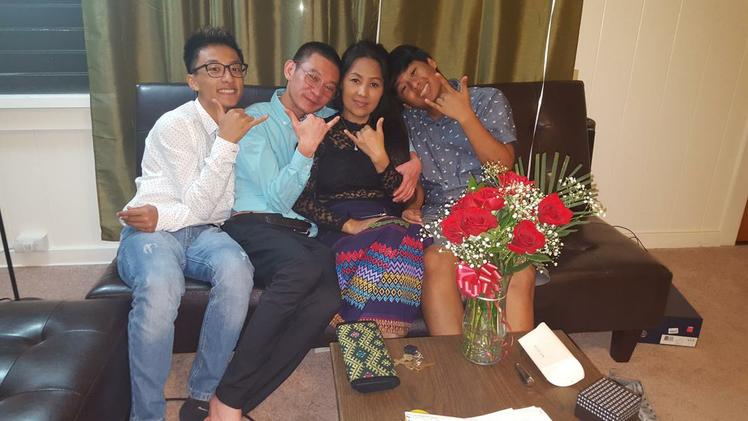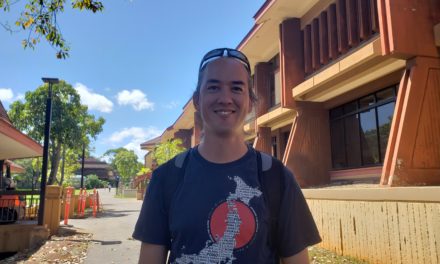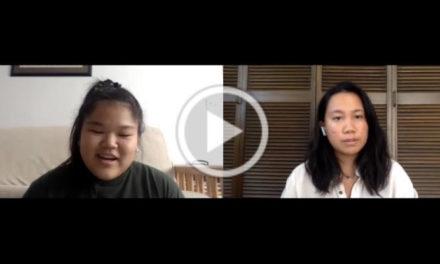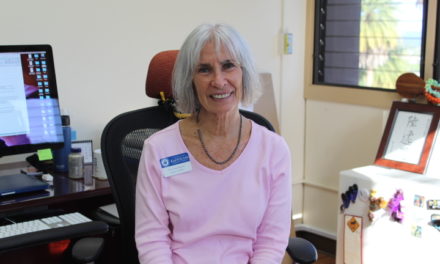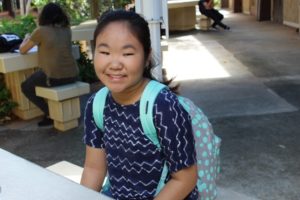By Kayla Valera | Staff Writer
Gum Aung is a 17-year-old high school senior at Kaimukī High School and is taking college courses at Kapi‘olani Community College through the Running Start Program at Kaimukī High. He is active in the school’s band and plans on pursuing a career in computer science.
But what sets him apart from most kids his age is the nearly decade-long journey he and his family had to take to get here. As of December 2016, Aung and his family have been able to call themselves U.S. citizens after living in this country for the past six years. In a recent interview with Aung, he relayed the story of he and his family’s trying passage into the U.S from his war-torn country, Myanmar (also known as Burma), and the constant moving in between.
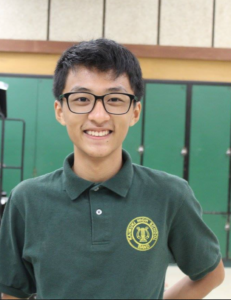
Aung is active in Kaimukī High School Band as a flute and sax player. (Photo Credit: Gum Aung)
“I want to inspire other people to follow their dreams, even if it can be difficult and sometimes seems impossible,” Aung said.
Burma is a country located in Southeast Asia between Thailand and India and is a melting pot of many different cultures contained in at least seven states. Currently, the country is divided between the Burmese army and the Kachin (the people who live on the northern side of the country). The country has been in a civil war with each other over land that has been going on for many years. Aung grew up in the north in the Kachin state, where the Burmese army have, for years, seized the Kachin land for its natural resources including jade, timber, and gold.
When he was living in Burma, his mother was the only one in his family who was able to receive a degree from a local college in the country. This enabled her to set her prospects of a different life with her family outside of Burma, leading her to Malaysia for about three years. For a while she had to leave her kids behind with her sister to ensure that her children, Aung and his younger brother, Naw Ni, would be able to live comfortably in the foreign country. Once they were able to successfully make the move over, she brought her children to Malaysia where they lived their lives as refugees.
Because he and his family gained illegal entry into the country, Aung was denied enrollment into schools, which set him back a few years in his education. However, this drawback did little to discourage he and his family at making a better life for themselves elsewhere. Once they were able to get into contact with the U.N., the family was given the choice to be sent to either Norway or the U.S. to live. The family subsequently chose the U.S. since it was more familiar with the English language than Norwegian; though he was young, Aung was already proficient in English.
By the time Aung was supposed to enroll into the 6th grade, the family was relocated from Malaysia to Atlanta, G.A., on March 8, 2011, where they had to live on their own. Because of his late birthday, Aung was instead rushed through the 5th grade in the last three months of the school year. One of the biggest adjustments that he and his family had to get used to is getting accustomed to the new country’s culture. Along with this, Aung had to deal with the struggles of transitioning into a new school and catching up with kids his age despite his gap in education. He found himself at a disadvantage compared to his classmates because he wasn’t familiar with the content.
“I used to feel like, ugh, I can’t do it and it’s impossible. As soon as I finished the 5th grade, I didn’t know what was coming afterwards because I didn’t understand the school system,” Aung said as he recalled his passage into an American schools.
Even though he was denied the traditional matriculation of grades that his classmates had, he was still able to persevere throughout his schooling in Georgia.
Making do with his situation, Aung had to just work even harder than his classmates to catch up. Because of his passion for learning, he endured through his classes and soon began to excel in his education. After his family moved to Waterloo, Iowa, in 2012, he was even able to attend high school as a freshman because the school he attended allowed for him to skip the eighth grade.
After a couple years of living in Iowa, Aung’s family made their final move to Hawaiʻi after his stepfather was able to land a job on the islands. While on the mainland, the family of four was able to create a steady living off their parents’ work at Tyson’s chicken factory, where the temperatures in the chicken processing freezers dropped to the low 30s. Although the work was laborious and taxing on his parents, they did it all to support their children.
It was here on Oʻahu where Aung’s parents found the opportunity to run and maintain a food business on the island. The business, AFC Sushi, is located in many supermarkets across the state including Safeway, military commissaries, and other military bases. Aung’s parents work to this day, as franchisees of this food business with the hope to one day open a restaurant of their own to share their native food and culture with others.
Aung explained that despite what was going on in 2016 with America’s political division surrounding the presidential election and Donald Trump, “I am proud of becoming a U.S. citizen and I continue to believe in the rights and freedom that America stands for.”

